ACCESS Celebrates End of Fall Term
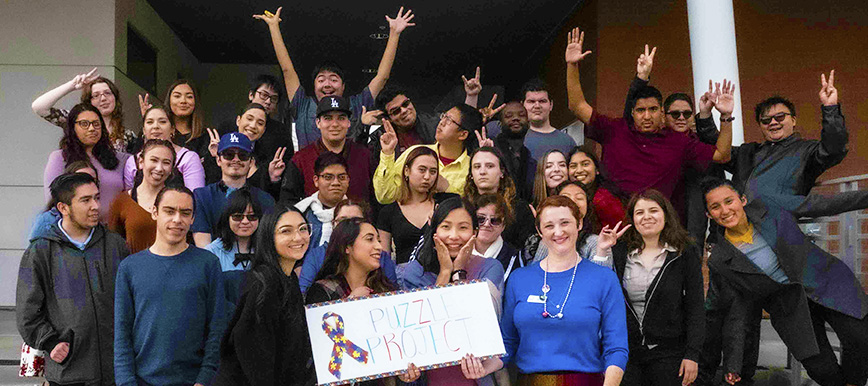
December 11, 2019 - 09:41 AM
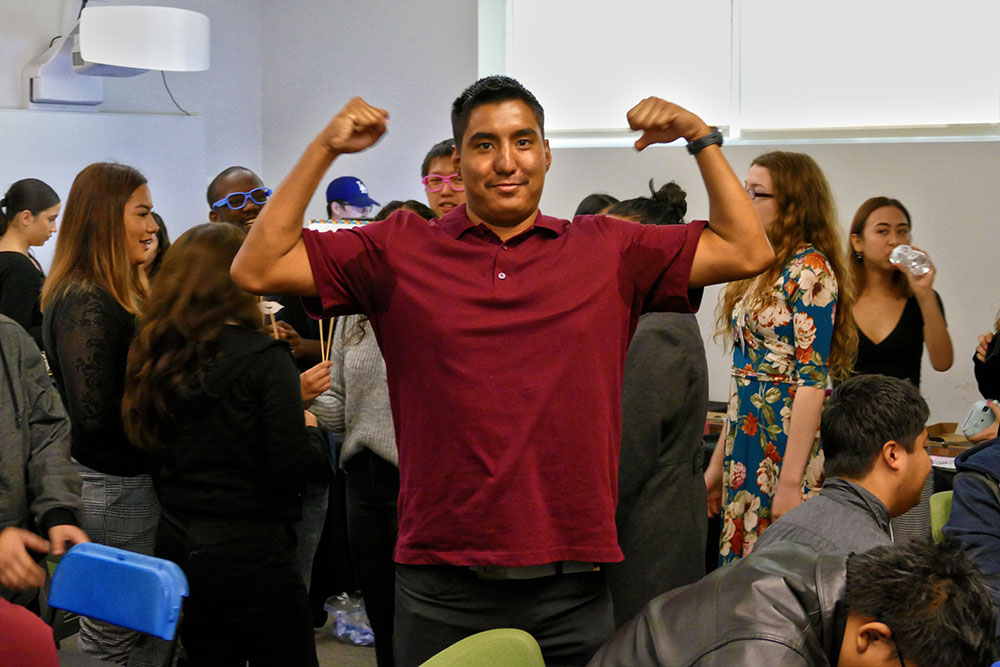 The Accessibility Resource Center at Mt. SAC (or ACCESS for short) held a pizza party
and award ceremony for students of its Puzzle Project, a program designed to help
students primarily on the autism spectrum with social interaction. One student, Adam,
gave a
The Accessibility Resource Center at Mt. SAC (or ACCESS for short) held a pizza party
and award ceremony for students of its Puzzle Project, a program designed to help
students primarily on the autism spectrum with social interaction. One student, Adam,
gave a 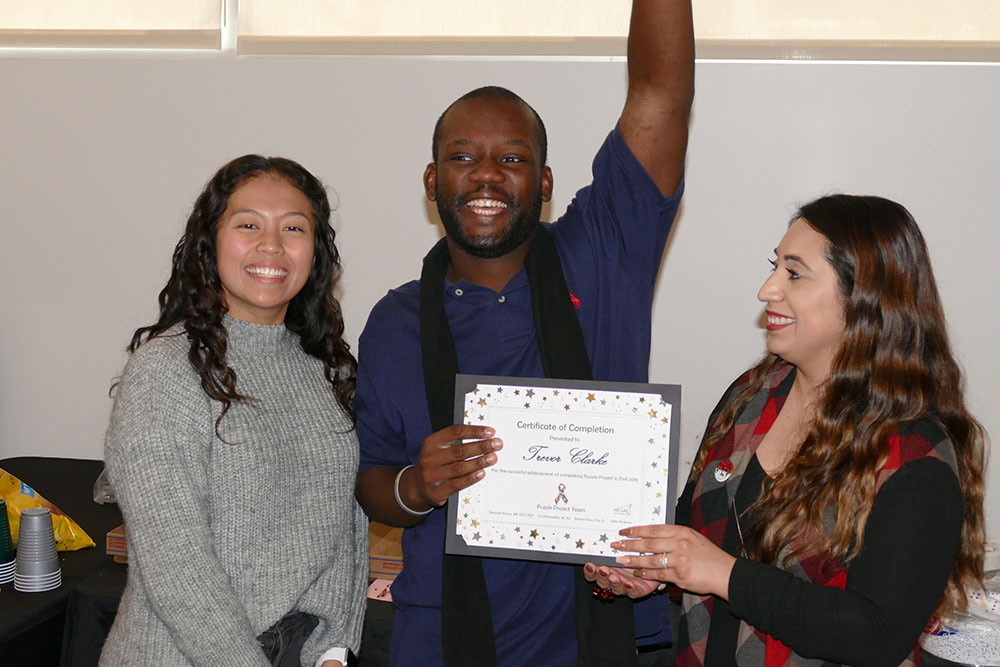 speech during the ceremony to thank staff, the mentors and his fellow students for
all their help in making him more confident in social settings.
speech during the ceremony to thank staff, the mentors and his fellow students for
all their help in making him more confident in social settings.
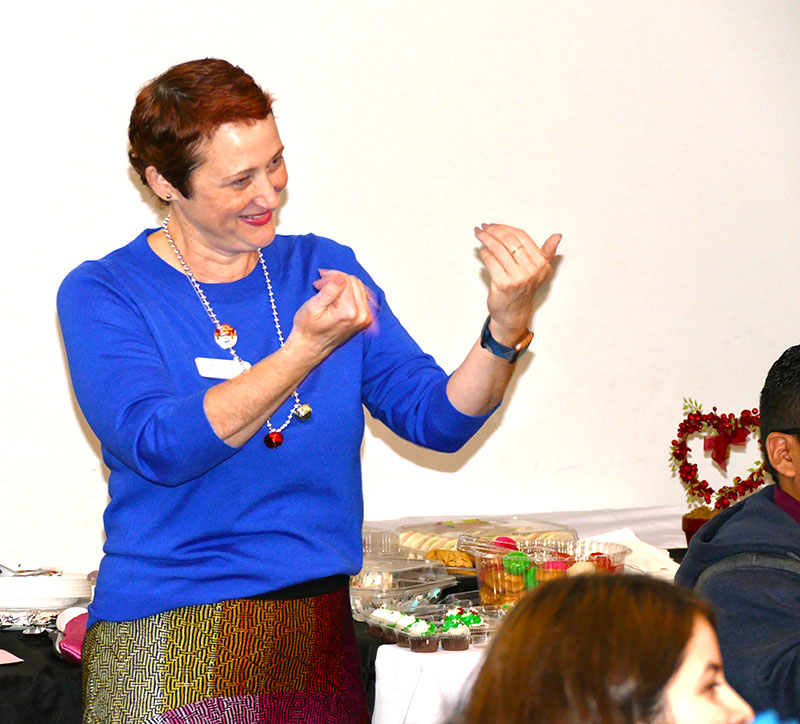
“In Puzzle Project, we work on dating, getting involved on campus or volunteer and vocational work,” explained Heather Ponce, Instructional Specialist & Speech Pathologist for ACCESS. “We also have student ambassadors, who want to be able to speak in front of a class, like we saw today.”
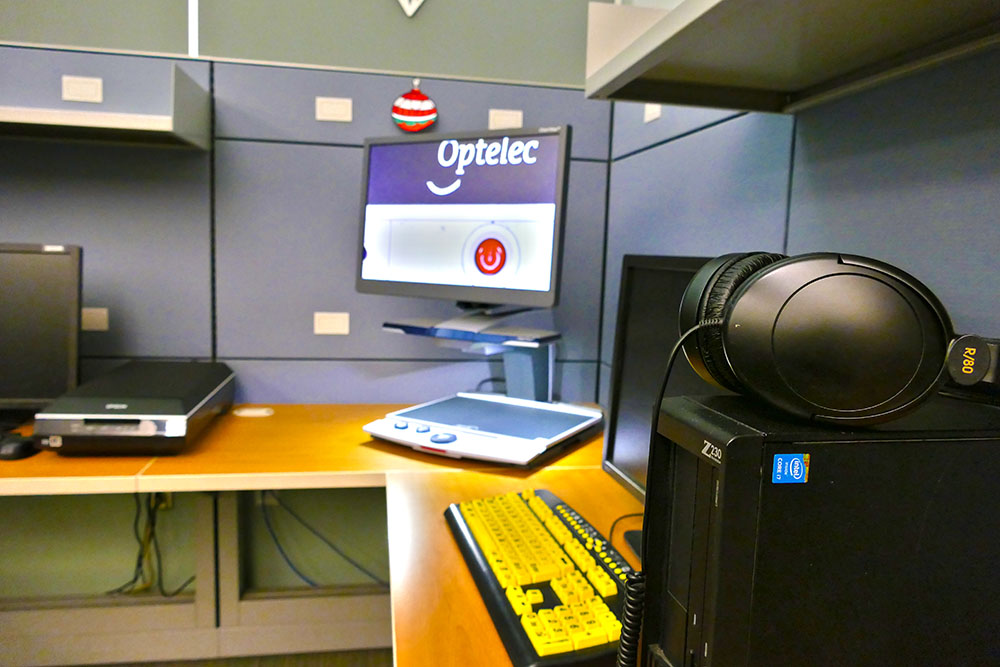 ACCESS is tasked with ensuring student’s equal access to instructional programs and
services. The program has staff to offer a wide variety of services depending on a
student’s needs. ACCESS also includes The Center (for Deaf and Hard of Hearing), as
well as a technology lab with special assistive equipment and software that allows
students with disabilities to do coursework that otherwise might not be accessible
to them.
ACCESS is tasked with ensuring student’s equal access to instructional programs and
services. The program has staff to offer a wide variety of services depending on a
student’s needs. ACCESS also includes The Center (for Deaf and Hard of Hearing), as
well as a technology lab with special assistive equipment and software that allows
students with disabilities to do coursework that otherwise might not be accessible
to them.
“There’s a big push to make all of technology accessible,” said Grace Hanson, Dean of ACCESS & Wellness. “Accessible Technology has applications for everyone. Captioning was created for people who are deaf; but nowadays, you will see it all over: on TV’s at the airport or in the gym, where they don’t play the sound on the screen. It’s just a way to make what’s happening on the screen accessible to everyone, not just those with disabilities.”
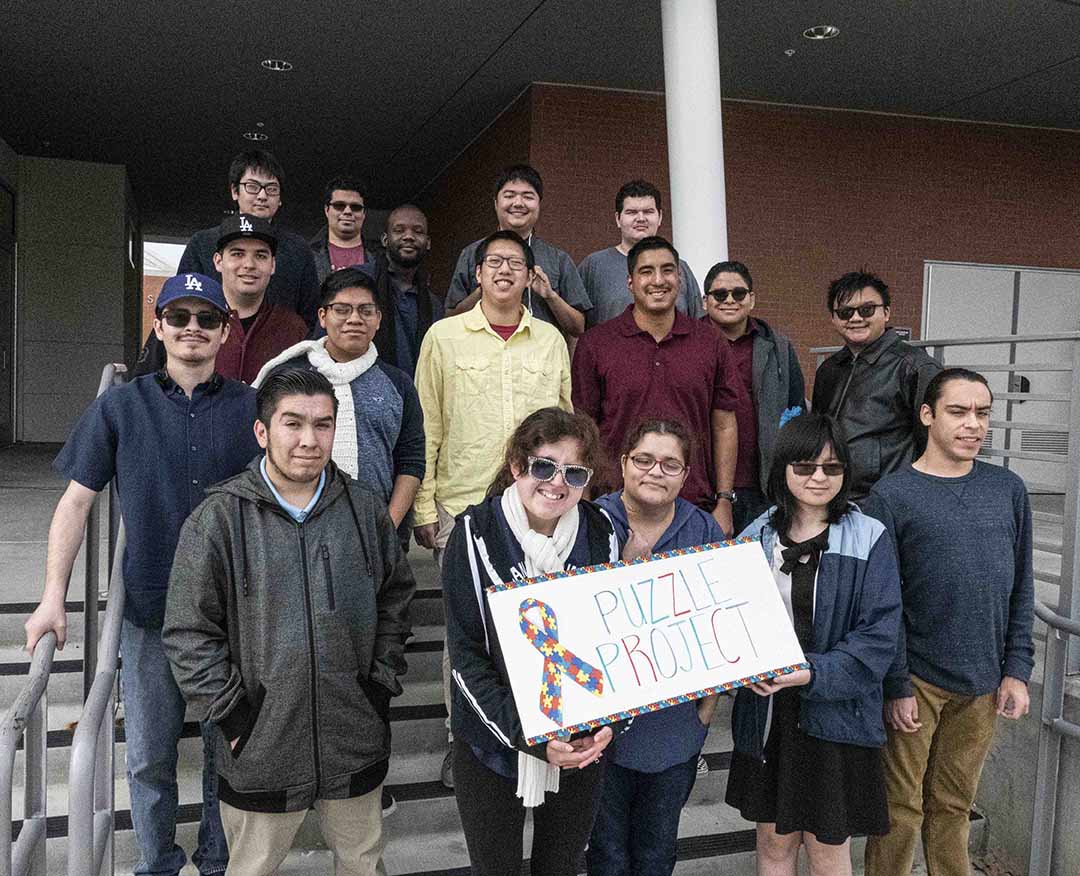 ACCESS staff work with students and the professors to make sure the educational experience
is accessible to them.
ACCESS staff work with students and the professors to make sure the educational experience
is accessible to them.
“We had a student taking an Art History course who was blind,” explained Hanson. “Since it is such a visual medium, staff made models and embossed the art so the student could feel what other students were seeing. That student got an ‘A’ in the class and the professor said the entire experience helped all the other students understand the art as well.”
ACCESS also has both credit and non-credit instruction. Examples include academic strategies courses in math and writing, career counseling, and Puzzle Project has courses in social interaction.
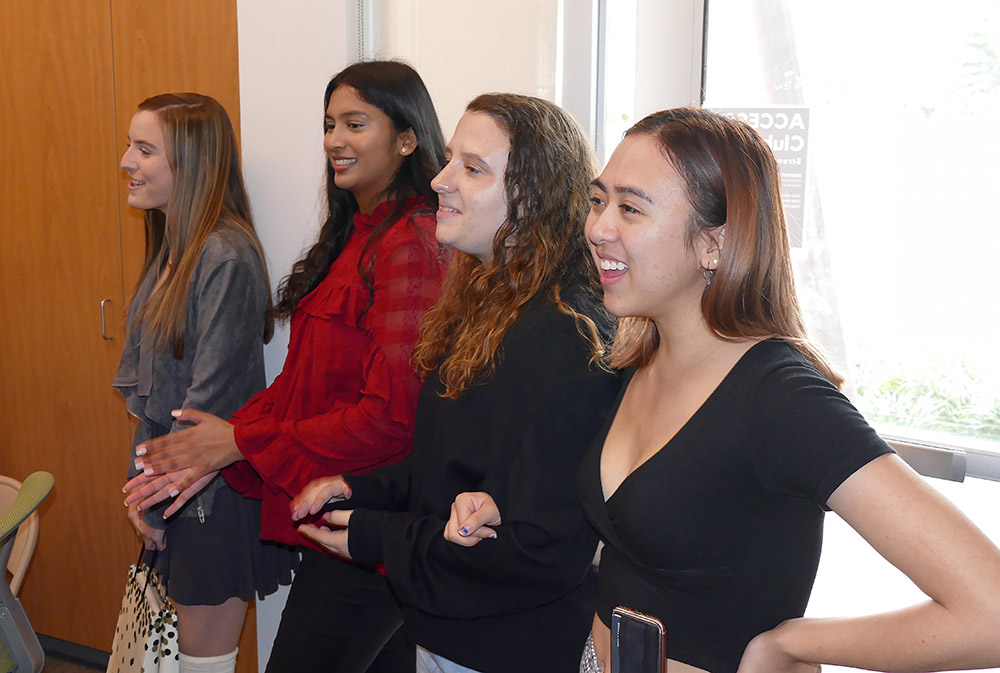 “It has really opened the doors for a great number of people to participate in society,“
said Hanson about the Puzzle Project. “Puzzle provides students curriculum out of
UCLA taught by our staff, and we have mentors assigned to each student to practice
those skills learned in class in a real world setting.”
“It has really opened the doors for a great number of people to participate in society,“
said Hanson about the Puzzle Project. “Puzzle provides students curriculum out of
UCLA taught by our staff, and we have mentors assigned to each student to practice
those skills learned in class in a real world setting.”
Visit the ACCESS webpage and the Puzzle Project webpage to learn more.


